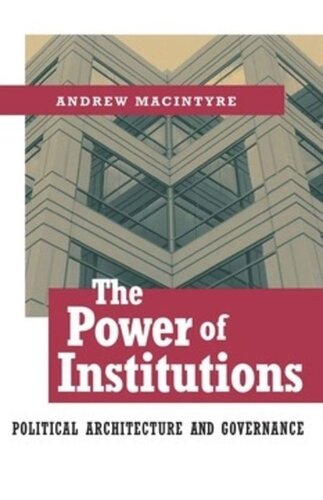

Most ebook files are in PDF format, so you can easily read them using various software such as Foxit Reader or directly on the Google Chrome browser.
Some ebook files are released by publishers in other formats such as .awz, .mobi, .epub, .fb2, etc. You may need to install specific software to read these formats on mobile/PC, such as Calibre.
Please read the tutorial at this link: https://ebookbell.com/faq
We offer FREE conversion to the popular formats you request; however, this may take some time. Therefore, right after payment, please email us, and we will try to provide the service as quickly as possible.
For some exceptional file formats or broken links (if any), please refrain from opening any disputes. Instead, email us first, and we will try to assist within a maximum of 6 hours.
EbookBell Team

4.0
46 reviewsConventional wisdom holds that "institutions matter." Here, Andrew MacIntyre reveals exactly how they matter in the developing world. Combining an eye for current concerns in international politics with a deep knowledge of Southeast Asia, MacIntyre explores the impact of institutions on effective governance. He examines the "national political architecture"—the complex of rules that determine how leadership of a state is constituted and how state authority is exercised. The Power of Institutions sets out an intriguing conundrum: one well-established body of literature decries the evils of highly centralized political systems, while an equally vigorous school of thought outlines the dangers of political fragmentation. MacIntyre presents the problems associated with institutional extremes, common in developing countries, as the "power concentration paradox." Either extreme is likely to be associated with distinctive governance problems. MacIntyre illustrates his wider arguments by focusing on Indonesia, Malaysia, the Philippines, and Thailand. He shows how their diverse political architectures influenced their responses to the Asian economic crisis and played into pressures for political reform. The Power of Institutions makes clear why the configuration of political institutions is one of the most pressing challenges in many parts of the developing world today.